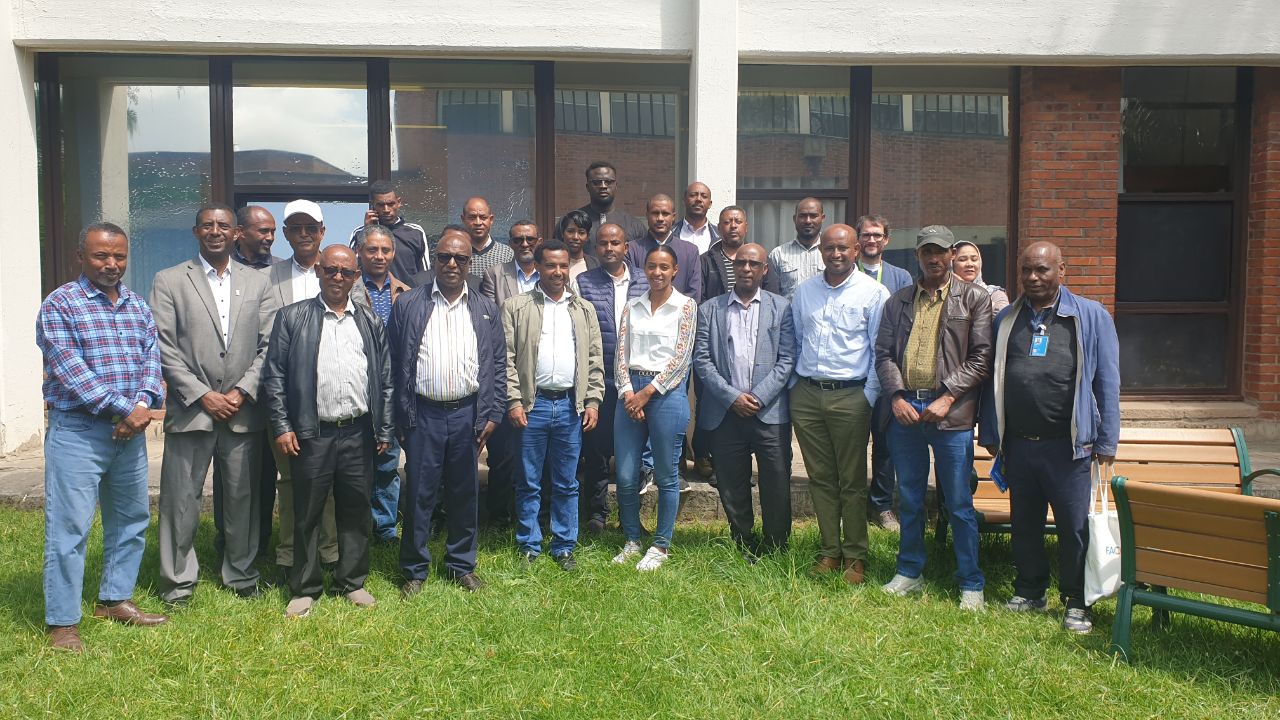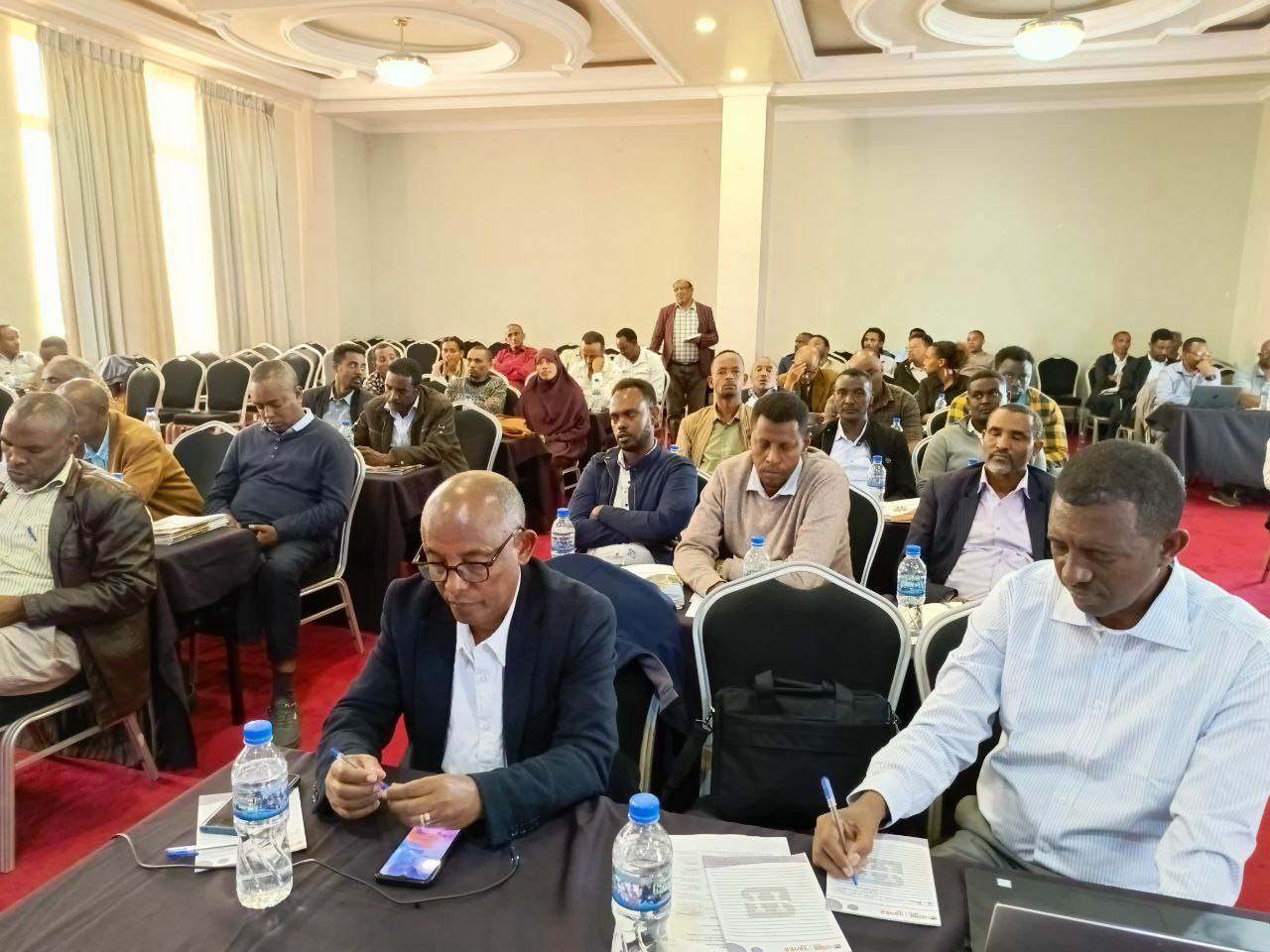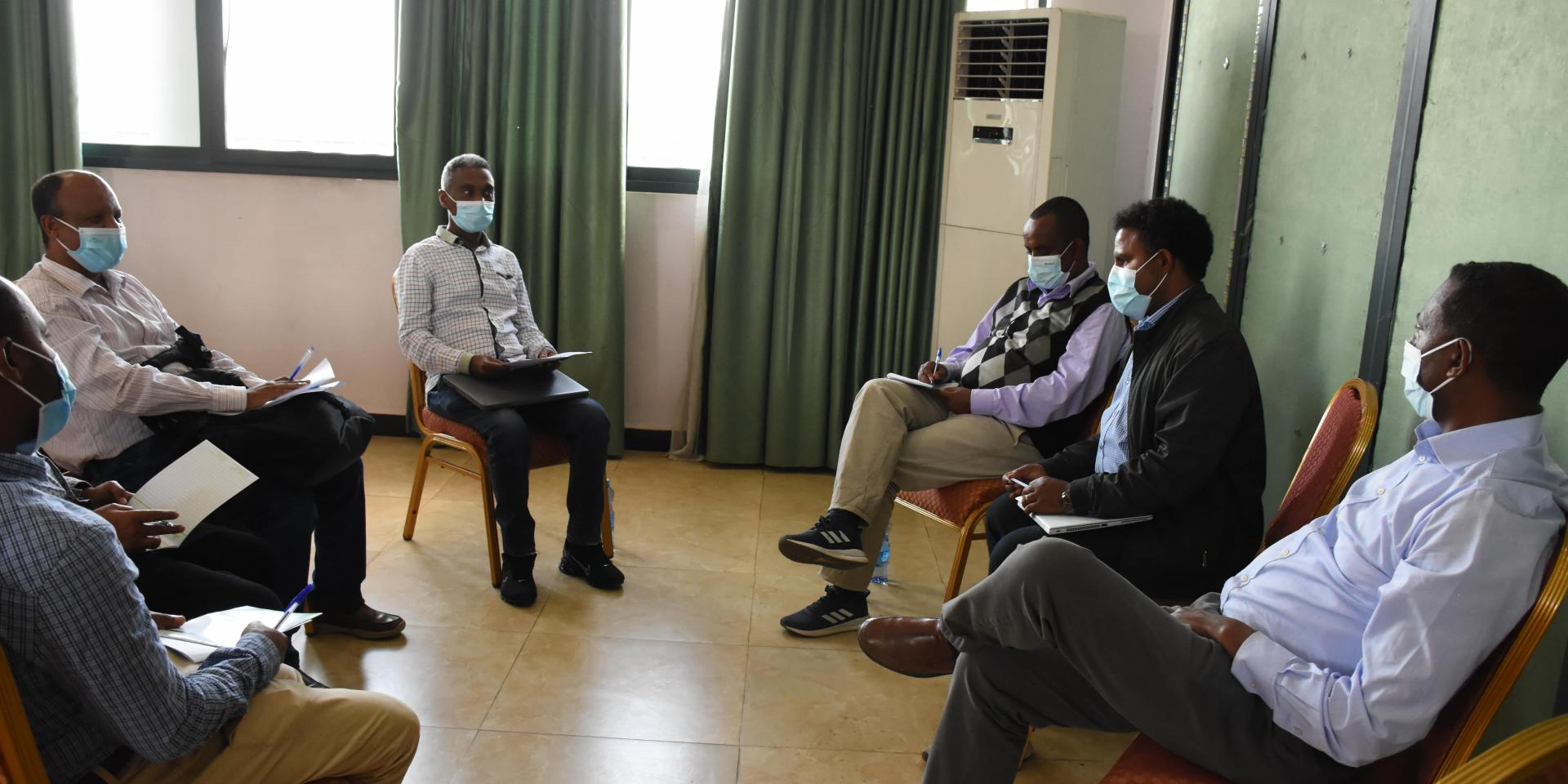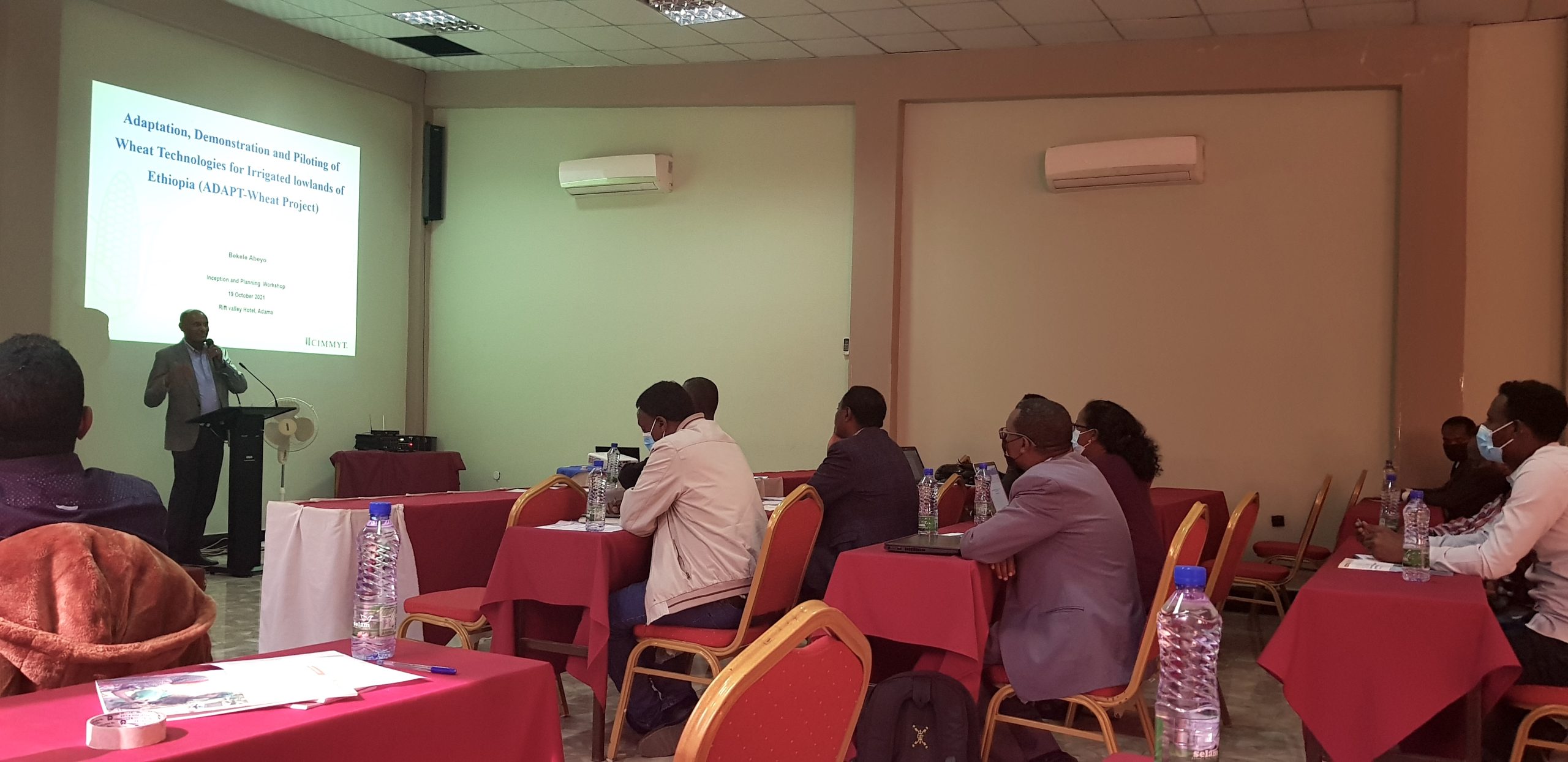CIMMYT and the Global Center on Adaptation, along with the Ethiopian Ministry of Agriculture’s Food Systems Resilience Program (FSRP), presented the results of their joint research on climate risks during a two-day workshop held in October in Addis Ababa.

For over a year and a half, agricultural experts, academics and scientists worked together under the project Digital Climate Advisory Services for Priority Agricultural Value Chains in Ethiopia, which aimed to analyze the risks posed by climate change on five value chains – wheat, maize, coffee, soybean and livestock – and to offer practical adaptation options. CIMMYT conducted the studies in collaboration with the Ministry of Agriculture and with the sponsorship of GCA. The workshop was attended by experts from the Ministry of Agriculture, the Ethiopian Institute of Agricultural Research, the Ethiopian Metrology Agency, the Ethiopian Agricultural Transformation Institute, the Food and Agriculture Organization (FAO), the Green Agro Solutions, among other organizations.
From research outcomes to practical solutions
As a prelude to the two-day discussion, CIMMYT senior scientist, Kindie Tesfaye, expressed his hopes that the research findings will be translated into practical solutions in the field. In turn, GCA Food Security senior program officer Mercy Nyambura invited the guests to share their insights, knowledge and expertise on how the joint research outputs could be put to use.
Highlighting that climate variability and climate extreme events are the main two factors undermining food security in Ethiopia, Keberu Belayneh, FSRP’s head at the Ministry of Agriculture, underlined the need for multi-partnerships to respond and adapt to climate change. He farther shared his hope that the program will contribute to the government’s ongoing efforts to ensure food security in the country.
Offering the perspective of a private sector actor, Green Agro Solutions’ executive director Abrhame Endrias hailed the partnership between his company and CIMMYT in five districts where the company deployed its digital platform LERSHA – “for agriculture” in Amharic. LERSHA provides farmers with vital weather forecasts, as well as other services such as farm inputs, mechanization services, and agro-climate advice. In addition, development agents are bridging the literacy gap between the farmers and the digital services, added Abrhame Endrias. In the five districts where CIMMYT and Green Agro Solutions partnered, LERSHA ‘s adoption rates increased, Abrhame Endrias noted.
Vibrant discussions
The results on the five value chains were presented in five different sessions. The first day of the workshop, Debre Markos University’s Dereje Ademe communicated the findings of the studies on the maize and soybean value chains, while Abate Mekuriaw, associate professor at the Addis Ababa University, introduced the results on the wheat value chain. They were followed on the second day by Adama Ndour and Mekdes Woldegiorgis, post-doctoral researchers at CIMMYT-Ethiopia, who discussed with the audience their findings on the current and future climate risks for the coffee and cattle value chains.
Echoing Kindie Tesfaye and Mercy Nyambura’s call, the conversations mainly focused on the potential implementation of the research outcomes, with multiple participants voicing their wishes to see the outputs cascading down to district levels.
Keberu Abayneh, the head of the FSRP in the Ministry of Agriculture, gave a closing remark at the end of the workshop thanking CIMMYT, the technical team that carried out the studies, the Ministry of Agriculture and all stakeholders who took part in it.
Following this, the first Regional Climate Risk Analysis Output Communication Workshop was held in Adama, Ethiopia, from November 13-14, 2023.
As highlighted in the first workshop, the research findings needed to be cascaded down to the regional and district level in order to be implemented successfully. To this end, the second workshop brought together the main representatives from regional agricultural offices in the 11 regional states, who engaged in discussions around the research findings, recommendations, and implementation methods. Researchers, agricultural experts, and representatives from the Ministry of Agriculture, Green Agro Solution, CIMMYT and FSRP also took part in the discussions.

This workshop, held with the aim of engaging participants from 11 regional states in active discussions and gathering feedbacks, is believed to lay the groundwork for cascading down the research results for implementation.
When representatives from regional states presented on their respective areas, they found more common points than differences. Climate change risk on each of the five value chains is felt across Ethiopia due to extremes and variances in rainfall and temperatures, and many regions are shifting cultivating seasons, forwarded by up to three months because of late-onset of rainfall. These incidents are forcing farmers to change conventional cultivation patterns, with those who stick to the conventional schedule at risk of losing their yields. Some farmers have even changed the types of crops they grow as a result.
Participants noted that the recommended adaptation plans are commendable and implementable in their respective areas, with the proper guidance and resources. In order to ensure tangible impact, they asked for the research documents on the priority value chains to be communicated to a wider range of stakeholders in each regional state.
Creating awareness on the climate risk and the adaptation plans, building capacity to ensure the implementation, piloting and then scaling up implementation across the regional states with consistent monitoring and evaluation can bring effective results, stakeholders agreed.

 Climate adaptation and mitigation
Climate adaptation and mitigation 